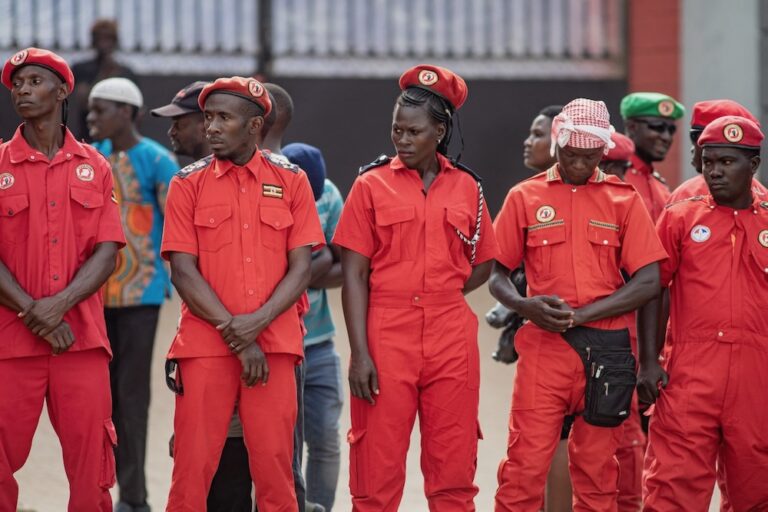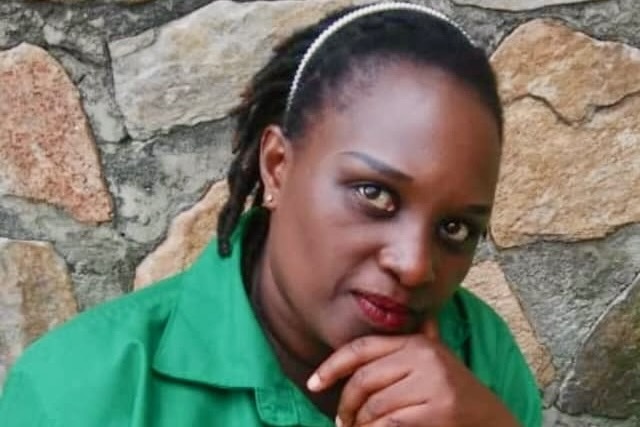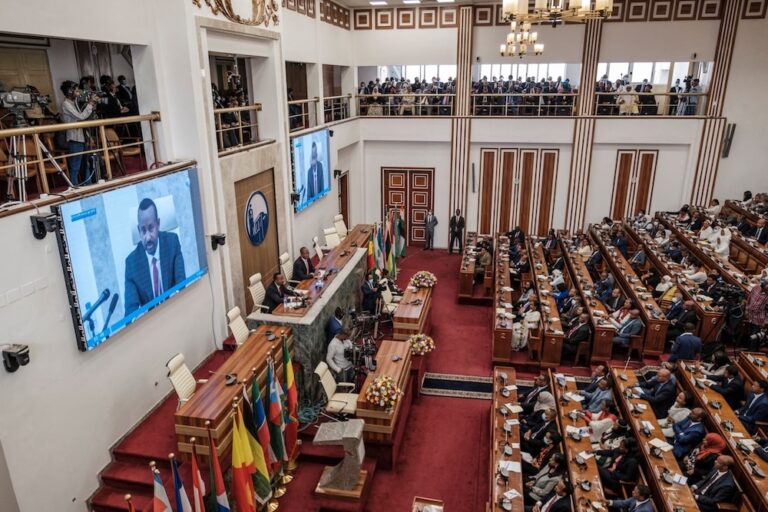(FXI/IFEX) – The FXI condemns the Southern Africa Development Community’s (SADC) call to establish a regional and international accreditation system for journalists, as reported in the “Mail & Guardian” newspaper. The FXI sees the move as a serious threat to the free flow of information in the region and would like to call on all […]
(FXI/IFEX) – The FXI condemns the Southern Africa Development Community’s (SADC) call to establish a regional and international accreditation system for journalists, as reported in the “Mail & Guardian” newspaper.
The FXI sees the move as a serious threat to the free flow of information in the region and would like to call on all regional organisations to protest the move. SADC has been incorporated into a protocol that was signed by the heads of state of its fourteen member countries in August 2001.
Article 22 of the Protocol on Culture, Information and Sport states: “State parties shall establish a regional and internationally recognised SADC accreditation system or procedure for media practitioners with specific guidelines in order to facilitate the work of such personnel in the rest of the world.” According to the Media Institute of Southern Africa (MISA), this clause is “extremely dangerous and subversive to media freedom, no matter how it is interpreted.”
What this means is that SADC governments will make decisions on which media or media institutions get accreditation. Unaccredited media practitioners would find it difficult to work in SADC countries, let alone on the rest of the continent, says MISA’s Regional and Information Coordinator Kaitira Kandjii. “Licensing of journalists also contradicts an extremely rich body
of impeccable jurisprudence on freedom of the media. The Inter-American Court of Human Rights issued an opinion that the licensing of journalists was illegal, especially where it denied any person access to the full use of the news as a means of expressing themselves or imparting information,” Kandjii said.
The apartheid government proposed the licensing of journalists a number of times, but the opposition of journalists and media companies staved off the move. Director General of Foreign
Affairs Sipo Pityana told the “Mail & Guardian” that officials from the Department of Arts, Culture, Science and Technology negotiated the protocol, from the South African side.
Pityana said the protocol would have to be ratified by parliament before it could come into effect. Many SADC countries, particularly Zimbabwe, Angola and Swaziland, have poor media freedom records and a common SADC accreditation of journalists would undoubtedly be used to stifle critical journalists and their publications. Currently, foreign journalists, even those from SADC countries, cannot enter some countries in the region, such as Zimbabwe and Namibia, unless they have received accreditation from the governments of those countries.
Kandjii said the protocol’s article on information only refers in very general terms to the free flow of information. “Its reference to, and definitions of, issues of freedom of information, freedom of media, media independence and pluralistic media, is technical and without much substance. The protocol does not pretend to elaborate, define or create any substantive right to access to information at all. Most disturbing is that the protocol fails to limit governments’ right to impose restrictions on the freedom of the media. This gives individual SADC states carte blanche on the type of restrictions each state can impose. Individual SADC states can create their media laws in any whimsical way they wish without adhering to any common standards on what should constitute SADC media laws,” Kandjii explained.
Article 20 states: “State parties shall take necessary measures to ensure the development of media that are editorially independent and conscious of their obligations to the public and greater society.” However, Article 21 notes that: “State parties shall encourage the establishment or strengthening of codes of ethics to boost public confidence and professionalism in the information sub-sector.”
Kandjii noted that the track record of some states in the SADC region is “enough proof that [Article 21] will be used to curtail media freedom.” MISA says the protocol “creates the impression of a half-hearted and shoddy attempt to pay lip-service to the right of a free media. It is this aspect that makes it dangerous and subversive to media freedom, and the idea of the free flow of information.” Instead, it should clearly spell out journalists’ unrestricted and unhindered intra-state and inter-state right of movement.


